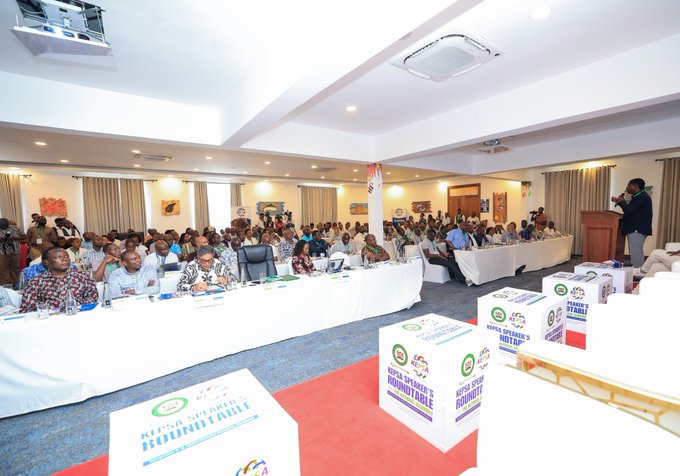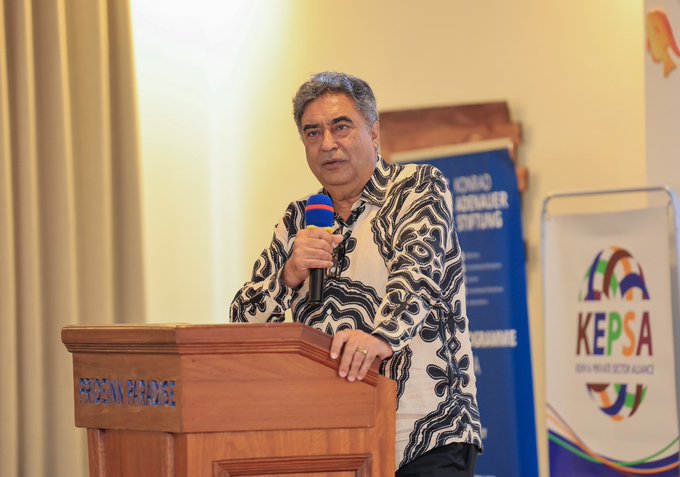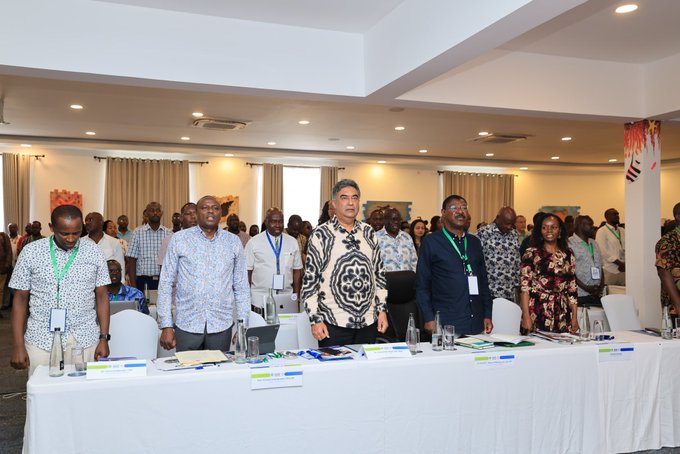MOMBASA, Kenya — National Assembly Speaker Moses Wetang’ula has warned the Judiciary against what he termed a worrying habit of issuing “careless” injunctions that disrupt government programmes and undermine Parliament’s authority.
Speaking on Friday at a meeting co-hosted by Parliament and the Kenya Private Sector Alliance (KEPSA) in Mombasa, Wetang’ula said courts were increasingly granting conservatory orders even on “non-existent” legal provisions, frustrating the implementation of legitimate laws.
“Somebody goes to court and cites a non-existent section of the law, and the judge issues conservatory orders against that non-existent section,” he said. “Injunctions are not cakes to be dished to everybody carrying a plate.”
His remarks appeared to reference the October High Court ruling that suspended parts of the Computer Misuse and Cybercrimes (Amendment) Act, 2025, which sought to criminalize the publication of false or misleading information and offensive online content.
Justice Lawrence Mugambi halted the enforcement of Sections 27(1)(b), (c) and (2) of the law, following a petition filed by gospel artist Reuben Kigame and the Kenya Human Rights Commission (KHRC).
The petitioners argued that the provisions were vague, unconstitutional, and threatened freedom of expression and privacy rights.
Wetang’ula, however, questioned the growing trend of “surrogate litigants” filing politically or commercially motivated suits under the guise of public interest.
“The person rushing to court does not even run a kiosk. They are simply a surrogate litigant for competitors,” he claimed.
This morning, at the 8th KEPSA Speaker’s Roundtable with the National Assembly, I urged the participants to ensure discussions aligned with theme of the meeting, to move from policy to practice by leveraging on delivery through business and government partnership. I noted that
The Speaker urged the Judiciary to exercise restraint, saying injunctions should be issued only as a last resort since other legal remedies such as compensation already exist.
He proposed a structured dialogue between Parliament, the Judiciary, and KEPSA to develop a more harmonised framework for resolving disputes affecting national policy.
“We need a roundtable with KEPSA, Parliament, and the Judiciary so that we harmonize how national decisions are adjudicated,” he said.
Despite his criticism, Wetang’ula said reforms require patience and collective commitment, quipping humorously that reckless judicial decisions could suffocate progress.
“Let us not be the ones to lean on the lungs of the people of Kenya,” he said, drawing laughter from the audience.







